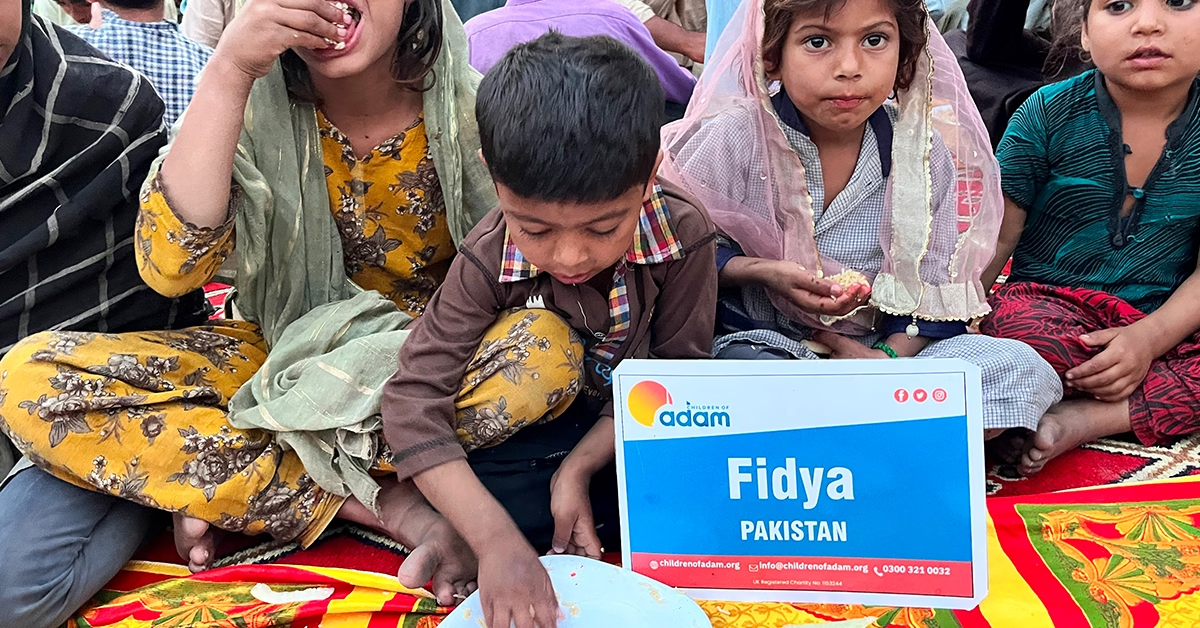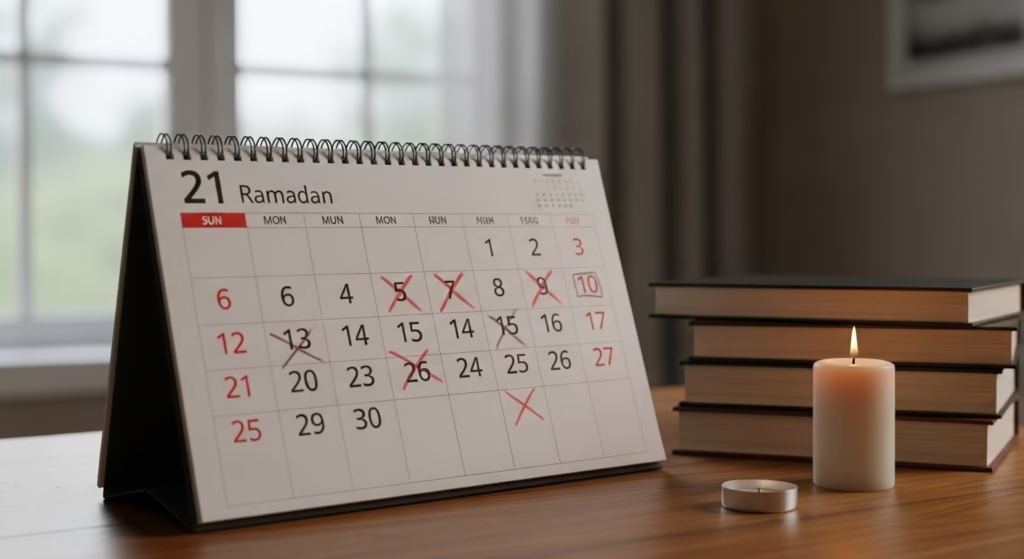Fasting during the holy month of Ramadan is one of the five pillars of Islam, an act of worship that brings us closer to Allah (SWT) and develops our sense of empathy for the less fortunate. However, in His infinite wisdom and mercy, Allah (SWT) has made provisions for those who may be unable to fast.
The rules and obligations around making up for missed fasts in Ramadan can sometimes seem complex, leading to questions about terms like Fidya and Kaffarah. Many people feel a sense of anxiety or confusion, wanting to ensure they fulfil their duties correctly.
This guide is here to provide clarity and peace of mind. We will gently explain the different types of Ramadan missed fasts compensation, helping you to understand your obligations and fulfil them with ease and sincerity.
Fasting with a Valid Reason: Making Up Fasts and Paying Fidya
Islam is a religion of ease, not hardship. There are several valid reasons why a person may be permitted to miss a fast during Ramadan. For temporary situations, the primary obligation is to make up the missed fasts at a later date, day for day, before the next Ramadan arrives.
Valid reasons for missing a fast (which must be made up later) include:
- Temporary illness or injury
- Being on a long journey
- Pregnancy or breastfeeding, if there is a concern for the health of the mother or child
- Menstruation
But what about situations that are not temporary? This is where Fidya comes in.

What is Fidya?
Fidya is a charitable payment made as compensation for missed fasts by individuals who are unable to fast due to a valid, long-term reason, and who are unlikely to be able to make up the fasts at a later time.
Who is required to pay Fidya?
- Elderly individuals who are too frail or weak to endure the hardship of fasting.
- Those with a chronic or incurable illness (such as diabetes) where fasting would be detrimental to their health.
- Anyone with a permanent condition that makes them physically unable to fast.
Essentially, Fidya for not fasting is a merciful provision for those excused from the physical act of fasting itself. The payment is used to feed a person in need for each day that a fast is missed. This ensures that while the individual is unable to fast, they are still connected to the spirit of Ramadan by providing sustenance for the poor. Currently, the cost to feed one person is £5 per missed fast.
Understanding Kaffarah: Atonement for a Deliberately Broken Fast
It is very important to understand that Kaffarah is entirely different from Fidya. Breaking a fast intentionally during Ramadan without a valid Islamic reason is a serious transgression that violates the sanctity of this blessed month. Kaffarah is the major atonement required to compensate for this act.
When is Kaffarah due?
Kaffarah is due when a person deliberately breaks their fast during the fasting hours of Ramadan with no valid excuse. This includes intentionally eating, drinking, or engaging in marital relations.
What is the penalty for Kaffarah?
The obligation for breaking a single fast in this manner is severe, underscoring the importance of respecting the fast. According to the Fidya Kaffarah rules, the atonement is one of the following, in order:
- To fast for 60 consecutive days (without interruption).
- If one is physically unable to do the above, then they must feed 60 poor and needy people for each fast that was intentionally broken.
This is a significant act of repentance. If you need to understand how to pay Kaffarah by feeding 60 people, the current cost is calculated at £300 for each deliberately broken fast.
Fidya vs. Kaffarah: A Simple Summary
To avoid confusion, here is a clear breakdown of the differences:
Fidya
- For Whom: Someone who cannot fast due to a permanent, valid reason (e.g., old age, chronic illness).
- Compensation: Feed one person for each fast missed.
- Amount (Example): £5 per day / £150 for the month.
Kaffarah
- For Whom: Someone who deliberately broke a fast during Ramadan with no valid excuse.
- Compensation: Fast for 60 consecutive days, OR, if unable, feed 60 people for each single fast broken.
- Amount (Example): £300 per broken fast.
How to Fulfil Your Obligation with Children of Adam
Whether you need to pay Fidya for missed fasts or Kaffarah for a broken fast, Children of Adam provides a trusted and transparent way to ensure your obligation is fulfiled correctly.
- To Pay Your Fidya: If you have determined that you are required to pay Fidya, you can easily make your contribution through our platform. Your donation for paying Fidya for illness or other valid reasons will be used to provide hot, nutritious meals to those in need, ensuring your duty is met.
- To Pay Your Kaffarah: If you need to fulfil your Kaffarah obligation by feeding 60 people, Children of Adam can facilitate this for you. Your contribution will be used to provide 60 meals to the poor and hungry on your behalf, allowing you to complete your atonement.
We handle every donation with the utmost care, ensuring that your charity reaches those who are most deserving.

Conclusion
The provisions of making up fasts, paying Fidya, or offering Kaffarah are all signs of the boundless mercy and justice of Allah (SWT). They ensure that no soul is burdened beyond its capacity while upholding the profound sanctity of the month of Ramadan.
Fulfiling these duties correctly is an act of worship that brings peace of mind, cleanses our shortcomings, and ultimately draws us closer to our Creator.
If you are still unsure about your specific situation, we always recommend consulting a knowledgeable local scholar for personalised guidance.




